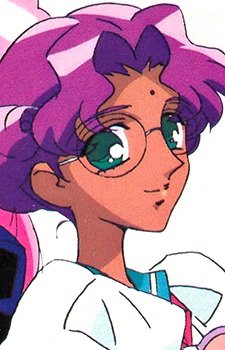
Cette critique peut contenir des spoilers
Messy but worth the watch
Pluto was a fun series to follow week by week, not just for the plot twists, but for the excitement of watching a creative team walk a dizzying tightrope. I haven’t read the novel by Chao Planoy, but her work tends to be controversial to say the least, and Pluto seems like an especially tricky work to adapt. It’s a more complex story than your average GL, too, mixing romance, mystery, and social commentary. And with two popular actors in the lead roles, Pluto promised to be one of the most ambitious Thai GL productions yet. Every week I found myself asking: Can they pull it off? Can Snap25 make this adaptation work?And hey, in the end, they almost did it! I don’t want to be too hard on them—by all accounts, they managed to improve on the novel quite a bit, and many of the flaws in the series are only glaring in hindsight. This is also probably the best-looking Thai GL; the cinematography and set design have an artsy flair that is often striking. The performances are excellent, not just from Namtan and Film but from the whole ensemble. Pluto can be a bumpy ride, but it’s always an entertaining and sometimes a beautiful one.
About those bumps, though. It’s tempting to blame any issues on the source material, but considering the liberties that were taken in adapting the book, I don’t think all of Pluto’s faults can be laid at the feet of Ms. Planoy. What I think Pluto might be lacking, more than anything, is a director. Technically the “Snap25 Team” is credited as director of the series, and they seem to have a very collaborative style, working closely with the actors to develop the story. That’s super cool, on one hand, and I like the egalitarian approach of crediting the whole crew. On the other hand, Pluto is a series that could really have benefited from a stronger unifying vision. Because baby the tone of this series is all OVER the place. Sometimes the drama is naturalistic and down-to-earth, and sometimes the soap opera dial is cranked up to 11. (Like in Episode 11, during the miscalculated sobfest, when May should react to being abandoned with cold fury, but instead acts like her only child was just brutally murdered in front of her eyes.) Sometimes the writing is subtle, and sometimes a character will turn to the camera and say, “That’s emotional abuse!” in a scene about emotional abuse. Sometimes there will be a musical number/dream sequence with like seven costume changes in the middle of an otherwise realistic episode. The whiplash is intense.
That lack of focus extends to the story, too. Pluto tries to be about a lot of things—disability, childhood trauma, forgiveness, atonement, justice, why you should never date a cop no matter how good she looks in that uniform—but can never really decide what matters most. As a result the themes and subplots all feel underdeveloped. Why is the Pang/Jan/Phim love triangle part of the story? Don’t get me wrong, I adore Kapook, Ciize, and Earn (especially Earn!), and honestly “lesbian polycule revolving around potted plants” sounds right up my alley, but the whole thing feels weightless. May’s lectures on disability rights and universal design are well-intentioned, but sound like the screenwriter is quoting from something they read on wikipedia, rather than like the genuine sentiments of a blind person. The script insists that blindness is not a limitation, but then awkwardly wants viewers to rejoice at the restoration of May’s sight, and even implies that her blindness was a punishment she had to endure. So many interesting contrasts and parallels between how May and Ai-oon were raised are ignored by the story, and of course the class difference between them is completely glossed over. And the Pluto metaphor!! Whatever Pluto was meant to represent in this series is beyond me.
I’m really just scratching the surface in terms of weird narrative choices: There’s the hilarious “May helps edit Ai-oon’s bad erotica” subplot which sadly gets dropped right away. There’s the dreaded redemption for May’s evil dad which comes out of nowhere. There are some confusing lines toward the end that suggest Phim may have originally had a larger role that got whittled down. And, off topic, but while I’m listing random complaints, why are all the visual effects so godawful? The opening credits are an actual travesty—whoever is responsible should never be allowed near Adobe Protools again—and the car crash scene looks like it was done by an unpaid intern.
Um, so Pluto is kind of a mess, in other words, but at least it’s a glorious one! Mostly. Everyone involved (except for the aforementioned vfx department) is amazingly talented and frankly deserves a better story, although they do their best with it. I would love to see what this cast and crew could do with a good director to guide them. And maybe with some source material untainted by the pen of Chao Planoy.
Cet avis était-il utile?

Cette critique peut contenir des spoilers
The one, the only, the OG...
Gap: The Series is singlehandedly responsible for the current wave of GL media sweeping the nation of Thailand. It was also my Thai GL gateway drug. It’s easy to nitpick what’s not very good about Gap, which other reviewers have already done. It’s certainly more fun to watch if you embrace its unique brand of campy hilarity, like when Lady Sam goes home to her empty mansion, puts on some funereal violin music, lights a bazillion candles, and takes a sad bath, like a depressed vampire. Comedy gold, people!What’s more interesting to me are the things that Gap does well. Whether intentionally or by accident, Gap succeeds in certain areas where recent GLs (*cough* loyalpin *cough*) have struggled. The characterization is surprisingly strong, for example, especially in the first half. Take the sad vampire scene: It’s silly and over-the-top, but it tells us all we need to know about Sam. She’s rich and pretentious, but her wealth and good taste can’t protect her from loneliness. Mon is naive and idealistic, meanwhile, but she’s no doormat; she has a mischievous streak, and calls out Sam constantly on her bs. The power dynamics are uncomfortable, of course, if you stop to think about them for too long, but the script does a pretty good job of making Sam enough of a blundering dork (who is possibly neurodivergent as well) that the playing field seems level-ish.
Gap even has good side characters! Sam’s friends all have distinct personalities, and they are so much fun that I can almost forgive them for being a bunch of self-absorbed nepo babies. Mon’s coworkers have their own charm, too. Even the rival CEO villain, who contributes jack-all to the story, serves so much **** whenever she appears that she justifies the whole pointless subplot. And the male characters, Kirk and Nop, are written with the right amount of nuance—they are obnoxious and entitled, with exquisitely punchable faces, but they’re given the chance to grow without being absolved for their behavior.
I do wish the later episodes, which are noticeably worse than the early ones, wasted less time on the grandmother and tiresome Sam/Mon theatrics, and allowed the side characters to shine more. It’s especially tragic that we were deprived of Tee/Yuki (who are so cute together!) apparently so that Sam and Mon can have yet another round of break up then make up. To be honest, when I rewatch Gap, I rarely make it past Episode 9—the characters get a bit lost in all the drama toward the end, and there’s not enough camp to make the drama fun.
But there’s a reason I keep rewatching Gap! The romance might be riddled with tropes and clichés, but you know what? The tropes work. It IS cute when the couple meets as kids for the first time, and when they reunite as adults, I DO want to know what happened to Lady Sam to make her change so much. It’s fun to watch a ray of sunshine like Mon melt the heart of an ice princess and make her smile, and it’s fun to watch them try and fail to hide how much they want to make out in the workplace. Gap is a trashy show, yes, based on a trashy book, but as the film critic Pauline Kael once said, “GL is so rarely great art that if we cannot appreciate great trash we have little reason to be interested in it.” (I’m paraphrasing.) I wouldn’t say Gap is always great trash, but it is pretty dang good trash, for the most part, and it paved the way for hopefully even better trash—and, who knows, maybe even some good art—in the future.
Cet avis était-il utile?

Cette critique peut contenir des spoilers
Okay, so it’s not great, but...
Let’s get this out of the way: If you’re looking for healthy relationship dynamics, Affair is not the show for you. Wan and Pleng share exactly one horny brain cell, and they don’t share nicely. If you’re looking for thoughtful and nuanced writing…Affair is also not for you. The plot is, to put it kindly, bizonkos. The character dynamics are pretty one-note as well—Wan is jealous and possessive, Pleng is guilty and repressed—so the script feels repetitive, despite the melodrama of it all. If you’re looking for something well-made and aesthetically pleasing, um, well, Affair looks pretty good at least, by GL standards, though a bit sterile for my taste. The soundtrack unfortunately is pretty bad, and it is playing CONSTANTLY. I swear to god a single conversation will have as many as four different BGM tracks play one after the other (and always the same four tracks, on endless loop). It’s as if the sound editors are allergic to silence.But at the end of the day, there is really one reason to watch Affair, and that is the mesmerizing set-your-screen-on-fire chemistry of Lookmhee Punyapat Wangpongsathaporn and Sonya Saranphat Pedersen. Is that enough reason to recommend it? For me, yes. They are masters of the “I am devouring this woman head-to-toe with my eyes” stare. And, while the script might be objectively bad, it is very good at engineering situations where Wan looks at Pleng like she’s a big steamy bowl of noodles while their lips hover two inches apart. The tension is simply unreal.
The best parts of Affair are when the tension is at its highest, when it’s about how desperately down bad these women are for each other, and nothing else. As soon as other characters start to intervene, it suffers. I can accept one boring man being used as a pawn in Wan and Pleng’s jealousy-revenge schemes, but three?? Ultimately, with the focus on the main couple so tight, and the other characters so irrelevant, Affair feels limited—confined by the source material and the eight-episode format. It’s hard to believe these women have lived more than a decade apart from each other without apparently having any other romantic relationships with women, or making any friends. Their lives feel so empty aside from their devotion to each other.
If you can surrender to the fantasy, though, and ignore the fact that if this were real life, Wan and Pleng should be seeking psychological help, Affair is a fun romp, mostly thanks to the talents of Sonya and Lookmhee. I hope their next project is worthy of them!
Cet avis était-il utile?

Cette critique peut contenir des spoilers
It pains me to say this...
As a fan of women in period costume, and a big fan of Gap, who has been looking forward to this series ever since it was first announced, it pains me to say that The Loyal Pin royally sucks :(Don’t get me wrong, it looks much better than Gap did, with the ravishing sets and dresses you would expect of a big-budget period piece, and a cinematographer who knows how to compose a shot...and can even hold the camera straight! Freen and Becky do their best with the material, and skillfully showcase a wider range of emotions than in their previous work.
But you know what Gap never was, for all its flaws? Boring. It had personality! Quirks! Camp! A dumb sense of humor! And as pointless and silly as the conflict often was, there were at least characters you cared about involved in it.
The Loyal Pin gives us zero reason to care about Pin and Anin except that they are gay and in love. And hey. Sometimes that's enough. If this were a film, or a short miniseries, I wouldn't need much more reason than that. But this is a 16-episode drama. There is ample time for character development. The first few episodes at least gesture at some personality types: Lady Pin is the straight-laced obedient one, and Princess Anin is the headstrong hellraiser who knows what she wants and will do anything to get it. That’s fun! The best moments in the series come during Anin’s increasingly over-the-top seduction attempts, when there’s something approaching tension between the two of them.
Then they confess their love—in quite a lovely scene, actually, probably the high point of the series for me—and it’s all downhill from there. Any semblance of personality these characters once had is obliterated. Who is Anin? She’s a girl who really loves Pin. And is also the princess, I guess. Who is Pin? She’s a girl who really loves Anin, but then is forced to marry someone else, and is sad about it.
That’s it. That’s the story. There isn’t enough substance here to sustain eight episodes, let alone twice that many.
Even in the early episodes there are warning signs of the snoozefest to come. When Anin is scheming to make a laughingstock of her rival Master Kuea, it’s a perfect opportunity for some conflict: What if her plotting backfires? What if Pin thinks she’s going too far, and they fight about it? The screenplay blissfully swoops past this possibility. It’s as if the creative team heard some criticism of the relationship in Gap, and responded by surgically removing not only the faintest trace of toxicity, but any source of friction between the leads altogether. Sure, the yuri is wholesome, but at what cost?
It’s not just the leads who are lifeless archetypes. The screenwriter is perversely determined to make each character into the blandest possible version of themselves. Master Kuea could be a fantastic “nice guy” villain, if we ever had any idea what was going on in his head. Instead he comes across as kind of a hapless dork with no clue what he wants. (Which, admittedly, is a real type of guy, just not an especially riveting figure in a drama when he’s supposed to be driving the conflict.) Aunt Patt’s tragic backstory is squandered, and makes her behavior in the present day more confusing than compelling. The elder brother has his edges so thoroughly sanded down he might as well be sawdust, while the playboy brother threatens to have some interesting flaws (for a moment I almost thought a member of this fictional royal family might be portrayed in a less-than-flattering light!!) but is revealed of course to have a heart of gold in the end. I’m not even sure why the mom exists tbf. And don’t get me started on the servant characters, whose lives apparently revolve entirely around helping these two noblewomen get laid. Nam played a similar comic relief role in Gap, yes, but her character in Gap had a life of her own. Here she is wholly subservient to the princess, and to the plot. I can’t say I was expecting searing class critique from a drama sponsored by the Thai government, but still.
The only side characters of any interest are Lady Uangfah, who provides a scene or two of classic sadgirl longing, and the other girl who is thirsty for the princess whose name I forgot. Both characters are tragically underutilized, and if you think the script is ever going to deal with or acknowledge the fact that the princess gets assaulted, prepare for disappointment. That might introduce some complexity to the story, and we can’t have that.
Look, I’m not anti-fluff, or anti-spice. In 2024 we were blessed with the very fluffy 23.5 and the very spicy Affair, both of which I enjoyed. On the surface TLP might seem like the best of both worlds: it’s got fluff and spice in spades! But what’s missing is the spark that makes you actually want to watch the characters interact with each other. When Wan and Pleng finally take the speed train to Boinksville, you cheer because a series of soap opera circumstances have conspired to keep them apart for their entire lives despite how absurdly horny they are for each other. When Ongsa and Sun are cute together, it’s satisfying because we love to see a walking anxiety attack snag a baddie. When Mon and Lady Sam hook up, we are reminded of how much Sam has opened up, and how much confidence Mon has gained. Why am I supposed to be rooting for Pin and Anin, when all I really know about them is that they are two attractive rich ladies who grew up in neighboring mansions?
The answer, of course, is that they are played by Freen and Becky. And therein lies the problem. Gap wasn’t made to satisfy an existing fanbase. The creators may not have been artistic geniuses, but they knew they had to lay the groundwork to make you care about Sam and Mon. The Loyal Pin was created for legions of FreenBecky fans who will watch anything with FreenBecky in it. (I don’t mean that disparagingly: I’m one of those fans!) And it was created, let’s be real, for two reasons: to sell merchandise and promote tourism. It’s a 16-episode advertisement, starring the world’s first GL superstars as mascots. And while exporting photogenic lesbianism to stimulate the economy is a unique strategy for sure, and might work out great for the economy, I’m not convinced it’s great for art, or for lesbians. I only hope that Cranium, Freen and Becky’s next project, is more than another cynical marketing ploy.
Cet avis était-il utile?




